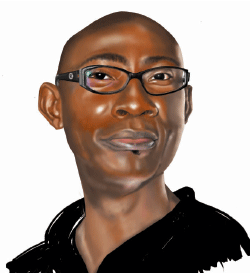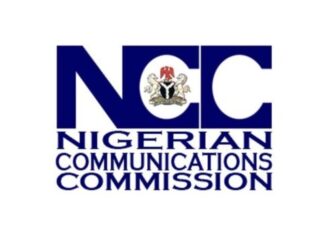Let me once again wish the readers of this column a rewarding and fulfilling 2015 despite all the fears of last year. I hope the pessimists are still not living in the fear of the prediction that Nigeria will be no more this year.
Something tells me that Nigeria has come to stay. Our duty as Nigerians is to ensure that as the years roll in and out, we play our own positive part to ensure that both the country and citizens are counted among nations positively impacting the globe.
This year began on a controversial note caused by politics and the struggle for power in the elections holding in February. Nigeria is charged politically.
Awareness even among illiterate Nigerians is unprecedentedly high. The political firmament has been electrifying since the Independent National Electoral Commission (INEC) blew the whistle for the start of campaign.
Agitation for power has taken a different dimension because the only functional industry in Nigeria currently is politics.
The rich, the poor, the informed, the uninformed, the healthy, and the sick, all see politics as the easiest means of influence and affluence in the shortest possible period. This guides the clamour for political office.
Politics is a business bigger than business. This should interest students of politics and history. They ought to examine it and come to terms with reasons why everybody has abandoned other vocations to pursue politics in a country with endless opportunities in other fields of human endeavour.
An issue attracted my attention last week and I started to wonder if the problems we have are not being made worse by religious leaders in conjunction with politicians. This arose from the comments credited to the controversial and popular Catholic priest and founder of Adoration Ministry in Enugu, Rev Father Ejike Mbaka.
He reportedly urged his members in a New Year message to vote for change and reject President Goodluck Jonathan in the election. Part of his reason is that the Jonathan administration has not done well enough.
A Youtube video of the message has since gone viral and has become a campaign reference material.
Politics has permeated the critical elements of the church. The Mbaka saga only shows how the men of God, through their views, have influenced politics with their pulpit than with the Bible. That is why the messenger has come under intense attacks and his message eliciting public outcry, especially among the Catholic faithful.
Different interpretations from the social media, the newspapers and the television have been given to the cleric’s message.
Expectedly, other men of God, both those who feel genuinely concerned about Mbaka’s comment and those best described as government apologists, have long entered the fray. Their own comments do not depict what is expected of those who ought to be consulted over spiritual matters.
Incidentally, Mbaka, like a confident reporter would want to stand by his story, wants to stand by his comment.
He said: “Tell them I am not afraid of them. I have said what I was asked to say. The only word I have for them is Isaiah 54:15,17: ‘Surely they shall gather, but because the gathering is not of God they shall scatter. No weapon fashioned against me shall prosper.’
“They said (Muhammadu) Buhari gave me money, but I have never met Buhari. I don’t know him in person. I only delivered the message I was given and I stand by that message because the future of this country is bleak with Jonathan in the saddle.
“When she (Patience Jonathan) came here, I told her to give me her number so that I could give her messages, but thrice she refused. It was later she told one of the pastors with her to give me his number.
“So, before that message, I had called the number for two weeks but it was always the personal assistant to the pastor that picked the calls.”
The comments of the Catholic Bishop of Abuja Metropolitan See, John Cardinal Onaiyekan, and the President of the Catholic Bishops Conference of Nigeria (CBCN), Archbishop Ignatius Kaigama, are not encouraging. Both sought sanction for Mbaka by his bishop.
“Mbaka is a priest of his own type. If he was in my archdiocese, I would have sanctioned him long ago for the kind of things and utterances he makes. But he is not under my diocese, he has a bishop to handle that if there is any need….
“I hope people are not thinking that we are sending Mbaka to talk rubbish, how can they think like that? If you want to hear anything, even not official but at least authoritative, then, you listen to the bishops,” Onaiyekan said.
Kaigama added: “Even the Canon Law forbids a priest to engage in partisan politics…. Mbaka belongs to a diocese, so if the bishop finds out that he has fallen out of line, the bishop can call him to order….
“Mbaka is just expressing his opinion, if we want to make a political statement, we know how to do it. That we keep quiet and we are marginalised does not mean we don’t have strength. With more than 30 million Catholics, we have the strength.”
Politics in the church, Orthodox and Pentecostal, is such big business that politicians take turns to visit the men of God to solicit endorsement. It is now fashionable for the big churches to encourage visit by prominent politicians.
Those who are familiar with the 16th century reasons for Renaissance and Reformation in the Roman Catholic Church will agree that the process is still on-going today.
The factors that made Martin Luther to nail 95 thesis at the front door of the Castle Church in Wittenberg, Germany on October 31, 1517 in the Reformation are still very much with us.
They may not be exactly the same but semblance of the same variables – selling of indulgences by the Catholic Church, misuse of power- Bishops lived like lords and did not care about the order to be poor and to help others.
Like what used to happen in Rome, only the big men in the churches in Nigeria must or want to have the answer to all the problems.
Yes, Mbaka should not be partisan as Onaiyekan and Kaigama postulated, but what happens when the Holy Spirit gives a man of God a message on the pulpit? Will it not amount to disobeying God if Mbaka had withheld a message from the Holy Spirit for his audience?
Would Onaiyekan or Kaigama have refused to obey the voice of God because they want to avoid politics, or better still, they want to protect a particular interest?
Part of the problem is that both the men of God and those who call themselves our leaders have lost the credibility to assert themselves. The pulpit remains a sanctuary of God and whosoever goes there for the purpose of dispensing the Word of God knows the implication.
The worst thing that can happen to a cleric is to mount the pulpit and suppress the Word of God when it comes to him undiluted or talk rubbish as Onaiyekan derogatorily suggested.
My advice to Jonathan is to ignore those who think Mbaka has done the unimaginable. They themselves do not mean well for the president. God sees through a contrite heart and is ever ready to forgive those who earnestly seek for His forgiveness.
Who knows, if it is the wish of God that Jonathan will win the presidential poll, Mbaka’s message may well be the beginning of Jonathan’s reconciliation with his Creator on all areas he may have done badly as president, as Mbaka pointed out.












